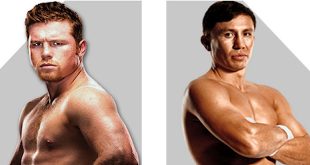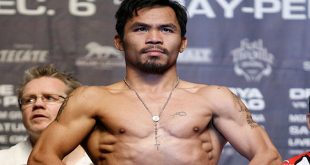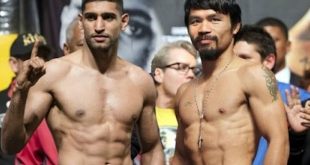Undisputed Cruiserweight Champion of the world, O’Neil “Supernova” Bell, was alleged to have recently attacked a sparring partner with a hatchet. Bell found himself in police custody before the authorities decided not to press charges. Our own Prince Naseem Hamed chose to show his remorse for paralysing a father of two in a road accident by leaving prison in a stretched limousine and subsequently suffered the ignominy of being stripped of his MBE. With role models like these, it is small wonder that boxing has become a minority sport, watched by few and practiced by fewer.
Boxing’s many enemies would undoubtedly see this only as a good thing, a positive step towards a utopian civilisation where pacifists live in wonderful harmony. But to reduce the “noble art” to merely a visceral and malicious blood sport is to miss the subtleties of its place in modern society and would be a great pity, since the benefits, particularly to the participants, are legion.
In schools across the London Borough of Bromley, children are discovering this first hand as boxing is back on the curriculum and I for one think that this can only be a good thing. Boxing is the most physically demanding of all sports, requiring fitness levels above and beyond those required to complete ninety minutes of football, whilst at the same time instilling the discipline and respect that many Premier League footballers sorely lack.
With the stalking horse of childhood obesity now the principle threat to our nation’s health, any and all options to put this particular equine out to pasture should be considered. And for those concerned with young children dealing out internecine brain damage, most of the training is non-contact, and the small proportion that is, involves head guards, and large, soft sparring gloves that are very different from those used in the professional ranks.
If I could pound for a moment, a timeless cliche; boxing truly is a potential focus for troubled young minds and can save them from a life of incarceration. Proof of this is easily found amongst the Boxing Hall of Fame, many of whom came from impoverished backgrounds and used boxing as a way to escape their penury.
Juvenile enthusiasm alone however, is not enough to allow boxing to climb up from the canvas to execute a glorious return. The sport needs to have spectators, and to draw those, it needs popular champions at its summit. It was not a fear of obesity that compelled Robbie Fowler to kick a ball against a wall in Toxteth for hours a day, but rather seeing his idol Ian Rush celebrating goal after goal in front of the Kop.
The main obstacle to increasing boxing’s audience numbers is the farcical nature of the TV coverage, dominated as it is by the inexorable politics of the American networks. To watch Ricky Hatton, Manchester’s own Ring Magazine Light Welterweight champion of the world, requires a Sky subscription, fifteen pounds pay per view money and enough midnight oil to last until at least 5am.
This is too much for even the ardent fanatic, let alone the curious newcomer. This does not help British fighters raise their profile, and is why so few are household names. There are actually British world champions at super middleweight, light heavyweight and cruiserweight. It would be pleasantly surprising if many could name them, but the simple reality is that people have long stopped taking an interest.
Furthermore, there are four sanctioning bodies at each weight meaning multiple “world” champions per division. It is by having universally recognised champions that interest in the sport is created, but this ludicrous system ensures that such a concept is completely impossible.
The situation is not yet lost as Frank Warren, the gatekeeper of British Boxing promotion, has decided to transfer his franchise from Sky to ITV. People are now watching boxing in numbers not seen since the glory days of the British middleweights, when Nigel Benn and nemesis Chris Eubank enthralled a nation that famous night.
As a result, millions watched Joe Calzaghe’s destruction of Jeff “Left Hook” Lacy to become undisputed Super Middleweight Champion last year. ITV have also covered the stellar rise of Olympic Silver Medallist Amir Khan, a charismatic and multi-cultural role model, ready to be embraced by a nation.
There is much wrong with the state of boxing but an undoubted soul burns within its embers and before rejecting the sport unanimously, it may well be worth entertaining a split decision!
 Boxing News Boxing News
Boxing News Boxing News






